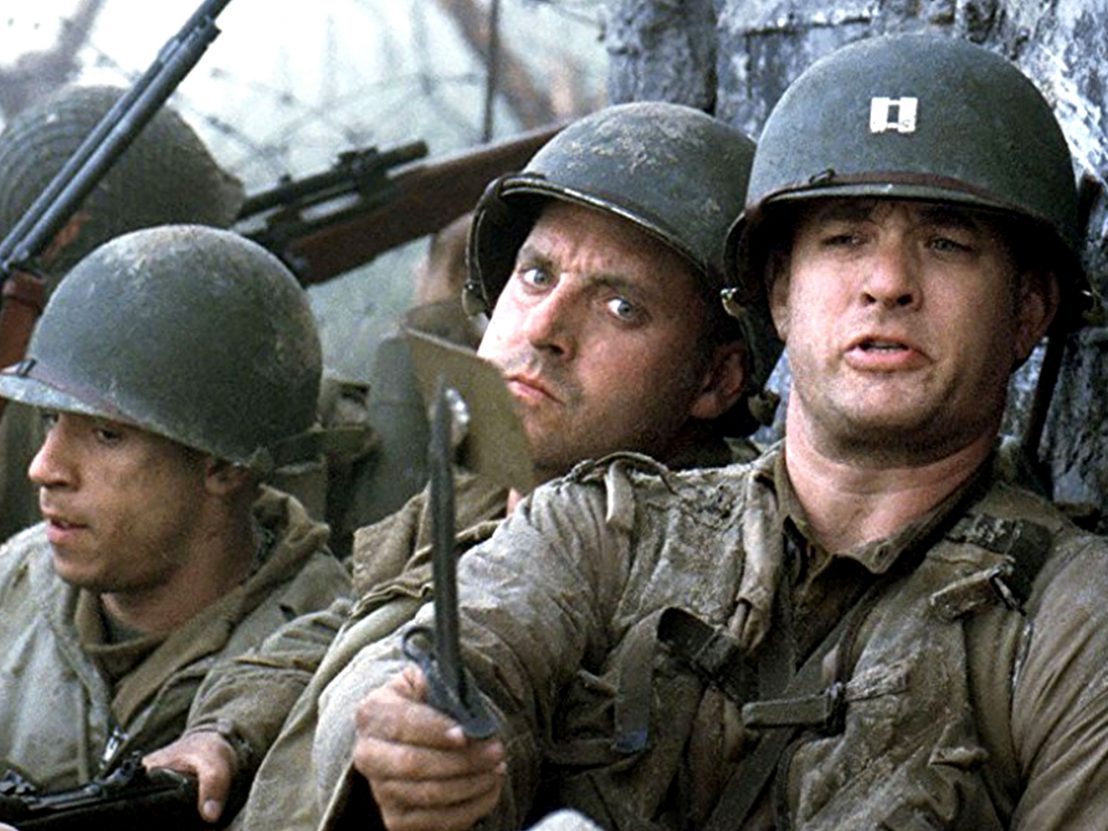
“Tell me I have led a good life. Tell me I’m a good man.” “You are.” These are the last words spoken in Steven Spielberg’s Saving Private Ryan, and they remain the secret to its devastating power. They illuminate characters with colours beyond the green of their uniforms and wounds deeper than flesh. Through their eyes, the horrors of war transform into a sprawling epic about the value of life, and the weight carried by those who survived what many did not. The movie is less about combat than consequence, the gory details of which could fill three full-length reviews.
But this is not a review. This is a story – one I’ve kept to myself for too long – about a very special person and the extraordinary movie that exposed the most hidden corners of his soul.
John Baldwin Preston, my grandfather on my mother’s side, was a lawyer, Justice of the Peace, and uninhibited family man from Virginia Beach, living just blocks away from my childhood home. As far back as I can remember, he and my grandmother were always present in our lives; even after we moved to another state, they were always right there in the foreground.
The two-year gap between when we moved and when my grandparents followed us south awoke in me a newfound fascination with my grandfather. I began dressing like him, listening to his music, and adopting whatever ideals I imagined him to have. By all contemporary yardsticks, he was an old-fashioned man – to my young and impressionable mind he resembled a grizzled outlaw, like Clint Eastwood in Unforgiven. I wanted to be the Schofield Kid to his William Munny.
But if the western mythos imparts any moral, it’s that outlaws pay a price. For my grandfather, it was cancer. I had just begun homeschooling when he was diagnosed, so I had a front row seat to everything that followed: hospitals, floods of tears and the reduction of living to its ugliest, most clinical components. As treatments dragged on and complications compounded, his illness slowly smothered the life out of his body and mind. His dulled appetite shrank him to a skeleton; at his skinniest, he could touch his index finger to his thumb and fit his whole arm through the hole with space to spare.
The news that the cancer had spread to his liver was, in a way, a relief – at least we finally knew what to expect. I suspect my grandfather felt the same way. My mother and her siblings took turns living in my grandparents’ spare bedrooms, where they spent the next several months assisting with what a hospice nurse termed “the dying process”. I admire the wording. It makes the end seem as harmless as breathing or blinking – it’s just one more function we all carry out.
On 6 December, 2008, on a cloudy morning, I was startled awake by the sound of the phone ringing from our kitchen. It was my mother, calling to tell me what I had desperately pretended she would never have to. Her words didn’t feel real until we visited my grandmother that afternoon, when the sad emptiness of their house finally sold me the hard truth. My grandfather, my hero, was gone. He was 84.
It was a transformative moment that opened my eyes to life’s intimidating size and scope – my own little world suddenly felt like a drop of water in a vast ocean of people, places, and most of all, questions, the majority of which I knew I may never find satisfying answers to.
These questions opened my world to the power of movies. In my mid-teens, films like A Clockwork Orange, The Departed, There Will Be Blood and The Social Network became objects of my fascination. They were bristling entertainments that slyly doubled as vehicles into more private depths. By painting pictures of the peaks and valleys of human behaviour, they prepared me for a life I’d only just begun to taste.
But there is no preparing for Saving Private Ryan.
The movie fades in. An elderly man hobbles down a dusty path, his family trailing behind. The camera moves in on his eyes, transporting us to Omaha beach, towards which boatloads of soldiers are fearfully headed. This begins the famous D-Day sequence, in which Spielberg and cinematographer Janusz Kaminski wipe away the frame and pull the audience into every fragment of the film’s mosaic chaos. It’s not a sequence exactly, but rather a series of split-moments jumbled like puzzle pieces dumped onto a table: bullets carving bubbly streaks through blue water; a screaming man with his intestines spilled across the sand; another man carrying his own severed arm, as if he might need it later. All of this is anchored by the magnetism of Tom Hanks as he shambles through the crossfire, the absence in his eyes is an achievement in acting.
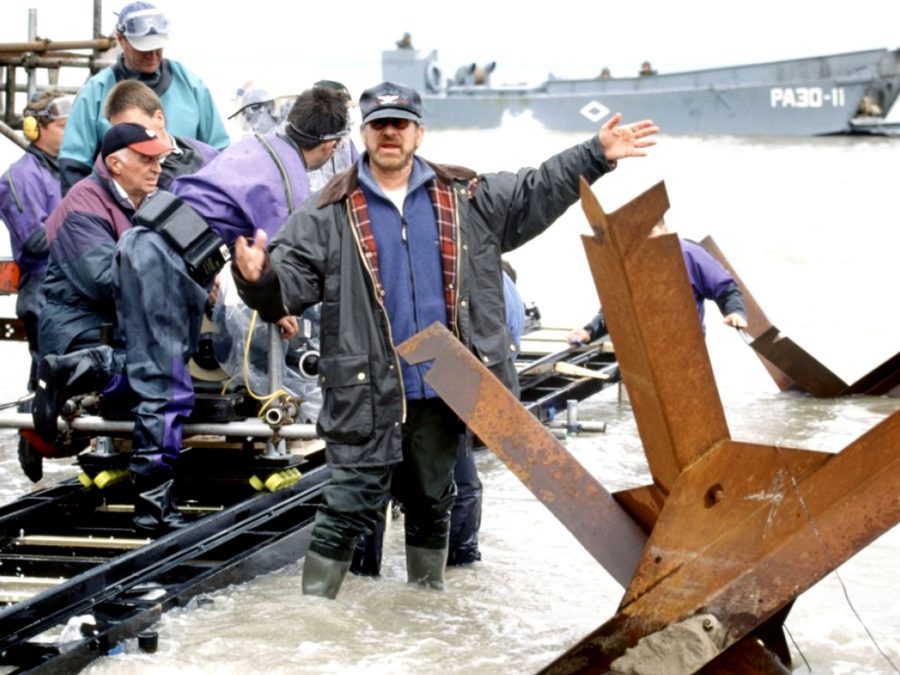
The genius of this sequence isn’t solely in its apocalyptic intensity – it also invisibly introduces nearly all of the central cast without a word of exposition. These eight men, all sharply defined through humour and telling instances of unguarded humanity, are responsible for going behind enemy lines and finding Private James Frances Ryan, who has lost all three of his brothers, and whom our characters must find so that he may return home to the only family he has left.
The first time I watched the film, I had to turn it off halfway through. I was on a plane with my parents, and the last call before landing broke the film’s electrifying spell. Once we were on the ground and stationary, I let loose, telling my parents how galvanising and intensely realised every moment of the movie was, and how it would raise my expectations for every viewing experience thereafter. I must have sounded a bit shellshocked.
“You know, Papa was there too.” my mother said.
“What do you mean? The movie?”
“No, I mean, he was there.”
This was a revelation to me – like Hanks and Spielberg, my grandfather had stormed the beaches of Normandy, only when he did it, take two wasn’t an option. He wasn’t part of the first wave depicted in the film, but his boat wasn’t far behind. If anything, my mother explained, his experience was even more severe. In the movie, our characters were welcomed to a clean beach. By the time my grandfather arrived, waves of red water lapped against dozens, if not hundreds, of dead soldiers, some no older than himself.
“That’s quite a view”, says Horvath in a brief moment of calm. “Yes it is,” answers Miller, staring at the offscreen carnage, “Quite a view.” For our characters, that sight is where the fire ended; for my grandfather, that’s where it began. Is it any coincidence that Hank’s character is also named John? To director Spielberg, doubtlessly. But those shots scanning the blood-soaked beach offer a kind of transcendence far too rare in cinema; for merely seconds of a nearly three-hour odyssey, I feel like I’m seeing the world through grandfather’s eyes for the first time.
When that first occurred to me, questions flooded my mind, all of them beginning with “How”. How could my grandfather, the most honourable man I’d known, have come through such relentless bloodshed with any of his trademark qualities in tact? How do you preserve the best of yourself when it was the worst that helped you survive? And how is it that something so horrific could break so many spirits while arming others with the courage to face the remainder of their lives?
What if he was completely different before military service? What person did he need to turn into to power through the unspeakable, and how did he do it? Perhaps in a backwards way, it was the war that sculpted him into the judge who stood so strong but loved so easily. When you’ve endured a trial that torturous, you may well forget what it’s like to live without questioning who you are and what you’re worth. Perhaps that’s why war produces such matchless writers – without the Battle of the Bulge, could JD Salinger have scraped the depths of ‘The Catcher in the Rye’?
“He rarely talked to about it to anybody, no matter how intensely people hounded him,” my mother explained, and after seeing it through the safeguard of a laptop screen, even I could see why. “But he might have told you.”
This sparked an epiphany that stretched far beyond World War Two: my grandfather had lived an entire life about which I was completely in the dark. He had 84 years worth of friends, fears, and meditations, none of which I’d ever paused to consider. I called him Papa, saw him nearly every week of my life, and loved him as dearly as I knew how, but at the end of the day, who was he really? I paint him with words like “old-fashioned” and “honourable”, but do they really apply to the life he led? What did I actually know about him beyond the clothes he wore and the records he liked? More importantly, what was I doing instead of finding out.
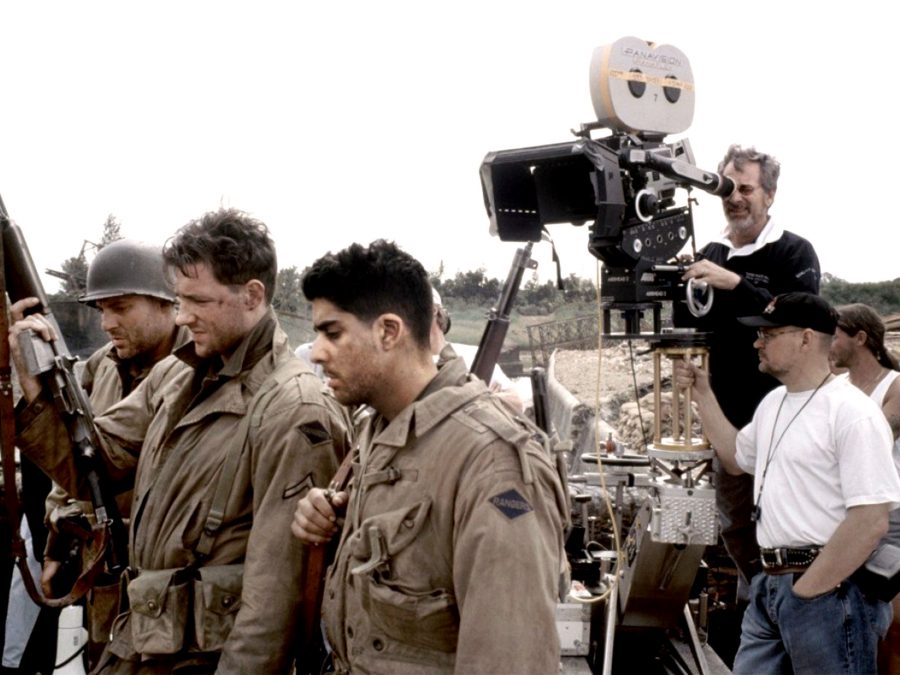
Of the soldiers we follow in Saving Private Ryan, one lingers especially: Corporal Upham, a scrawny writer and translator played with eery vulnerability by Jeremy Davies. Miller recruits his linguistic prowess to help find James Ryan behind enemy lines. Upham is a ticking time-bomb of meekness and insecurity, wholly unprepared for the responsibilities of warfare. The film’s climactic showdown sees Upham’s cowardice unravel in a teeth-clenching moment of petrified inaction. The repercussions are so devastating, your mind scrambles to determine what you’d have done under the same pressures.
Take the ammo up the stairs. That’s all he needed to do. How difficult could it be? I certainly wouldn’t be so timid in the face of something so simple.
But people often are. In trying times, people occupy themselves with whatever possible to avoid reality’s cold stare. For Corporal Upham, it was the safety of the moment. For me, it was the internet. The whole time my grandfather was dying, I was always in the room, but my mind was never on him. Instead, I threw myself headlong into a world of computers, geek forums, and podcasts, rarely spending time on anything else, let alone my grandfather. My parents were too preoccupied with taking care of him to monitor my time, so how I spent it was up to me. I devoted every waking second to that machine in order to mute the sadness surrounding me. If I pretended hard enough that none of it was happening, perhaps it would all simply stop.
But it didn’t, and gluing myself to the computer screen meant isolating myself from someone I was about to lose. Every bone in my body wishes I could wind back the clock, close that technological nuisance, crouch down next to my grandfather’s favourite lounge chair, and say to him, “Tell me everything.” I spent so much time aspiring to the idea of the man that by the time I caught a flash of who he really was, he was a ghost. Instead of helping him feel young again one last time, I sat on my computer, plugged-in and coldly remote. The night before he died, I wasn’t even brave to enough to look at him, let along tell him goodbye.
“You were too young,” my inner voice whispers, “What teenager could see the emotional aftermath of something so minor?” And small it certainly was – if anything, it was an act of self-preservation. But the older I get, the deeper my regrets cut into me. I believe big mistakes become stories worth telling. The small ones unmask the person we pretend not to be, and whether you learn from those mistakes or let them consume you is your call.
And I’m still learning, 10 years on. Saving Private Ryan is the perfect companion in that endeavour. Its scenes of loss and longing don’t haunt me with the attention I never paid, instead drawing me closer to the love I still possess. Perhaps that’s why I became a critic – I think I’m still looking for my grandfather in each new movie I find. I’ll probably never reach him, but the search is its own story. As long as Spielberg’s World War Two epic exists, those rich memories and endless questions will always be there, waiting to be dusted off when life tears me away from the cause.
That, I suspect, was Spielberg’s true intention. A film like Saving Private Ryan dislodges the precious history our minds often shove to the bottom, along with the lifetimes locked inside the most unsuspecting people. The film’s legacy is my grandfather’s legacy, and in that sense, it’s mine too. There’s too much about him I never learned; I can’t afford to forget what little I did. So if cherishing this impeccable work of art keeps alive memories of the bravest man I’ve ever known, I say to him: “I’ll see you on the beach.”
Published 24 Jul 2018
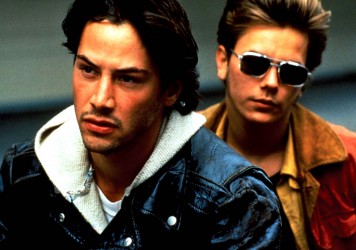
Watching Gus Van Sant’s 1991 film was like an emotional awakening – a guiding light through sexual fog.
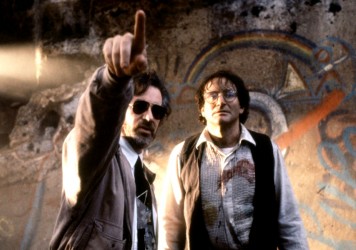
By James Clarke
Does the director’s take on JM Barrie’s classic tale of arrested development deserve its reputation?
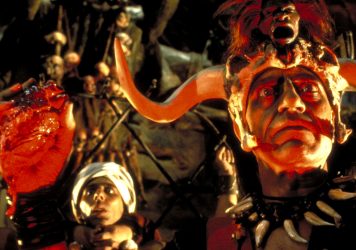
By Joseph Earp
He consistently advocates empathy and kindness, but the director is a master of screen cruelty.